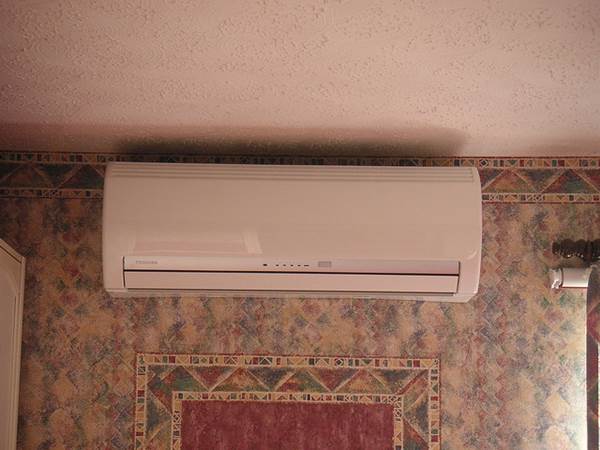 An Air Conditioner unit in Lee’s room – Photo Courtesy: Lee Hayw00d
An Air Conditioner unit in Lee’s room – Photo Courtesy: Lee Hayw00d
When you enter your home after a long day spent trudging around the streets doing your shopping or whatever it is that you have been up to, isn’t it wonderful to be welcomed by that icy blast of refreshing air form your lovely air conditioning system? We take these modern miracles for granted but can you imagine how people managed to get through the day, or the night, before these were invented all this years ago?
You can get an idea of how difficult it must have been at a time when your own faithful machine decides to let you down. This article looks at some common air conditioning faults and dishes out a few tips on how to fix them.
The Condenser Will Not Run
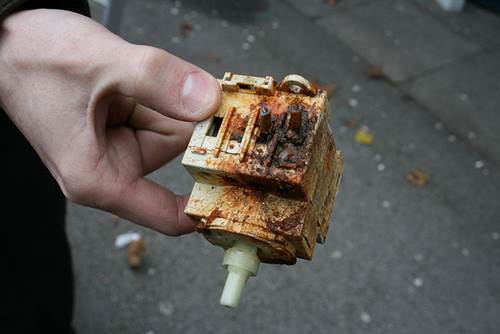
This could be a tricky one but you should approach the problem logically and look at the most obvious possibility first:
- Power Issues – check all of the fuses and see if any of these has blown, including the plug fuse. It is always worth keeping a few spares in case of times like these. You should also have a look at the circuit breaker to see if it has tripped out.
- The Thermostat may be set too high – Reset the level to as low as possible and see if the unit kicks back into life or not.
- Faulty Motor – Call the engineer.
The Unit Will Not Cool The Air
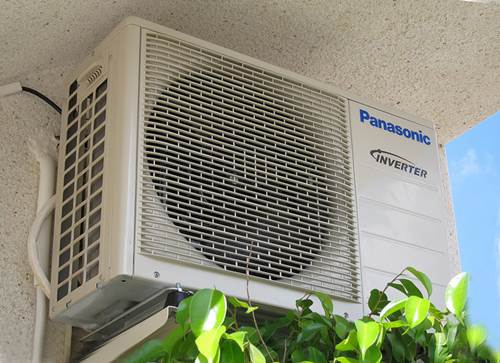
Above: Pam and Keith had an issue with their air conditioner. According to Keith, “the new air conditioning unit stopped blowing cold air. This air conditioning unit worked fine when it was first installed. The air in the room was nicely chilled and it was taking out a decent quantity of water each day. Then gradually it chilled less and less and the room still felt muggy an hour or so after the unit was switched on. Nothing else for it, call the shop and get someone out to look at it, so that is what we did yesterday. This morning, first thing, the technicians arrived and confirmed my suspicions that somehow all the gas had escaped from inside. After taking this outside unit off the wall, it was an easy job to locate the gas joint that was leaking, correct that, fill the unit back up with gas, and check that all was well with a manometer.
Result, the unit is working 100% again, the air is nicely chilled and the water bottle outside was half full after just two hours of operation.”
Photo (and story) Courtesy: Keith Williamson
It can take a while to actually realize that this is happening; the cool air can remain in the room for a while and you may be fooled into thinking that the machine is working just because the motor is chugging away:
- Thermostat is set incorrectly – Simply lower the required temperature to its coldest setting and see if the unit responds in kind.
- Condenser is dirty – Clean the condenser thoroughly and especially the coil and fins; you may need to straighten the fins.
- Condenser unit is blocked – Check for debris and remove if apparent; check for any outside vegetation that may be blocking the air flow.
The Condenser Keeps Turning On And Off Repeatedly
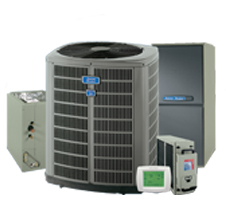 As well as very annoying, this problem can damage the rest of your air conditioning system if not attended to quickly:
As well as very annoying, this problem can damage the rest of your air conditioning system if not attended to quickly:
- The condenser is dirty – You should clean the condenser coil and fins thoroughly.
- The condenser unit is blocked – Check for any external blockage factors such as debris and external vegetation, remove these and retry the condenser.
- The evaporator is dirty – Simply clean the evaporator
The Cooling Ratio is Uneven
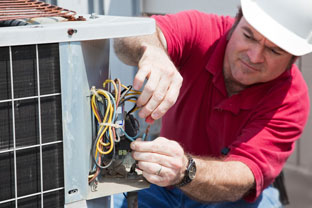
This can lead to the temperature rising and falling at random times. It is very annoying and can seriously damage your system if left unattended for some time:
- Distribution system has become unbalanced – This requires a rebalance of your distribution system; you will probably be best advised to call in the professionals for this task. Any fine tuning of your air conditioning system can be difficult to achieve without the right tools and experience.
- Thermostat issues – The thermostat may need replacing – they can be bought separately and are not too expensive.
Author of this post, Shaun Alan, provides services for duct cleaning in Miami. An instrumentation engineer himself, he knows what’s best for your air conditioner and often gives useful advice to people on his blog.
Leave a Reply